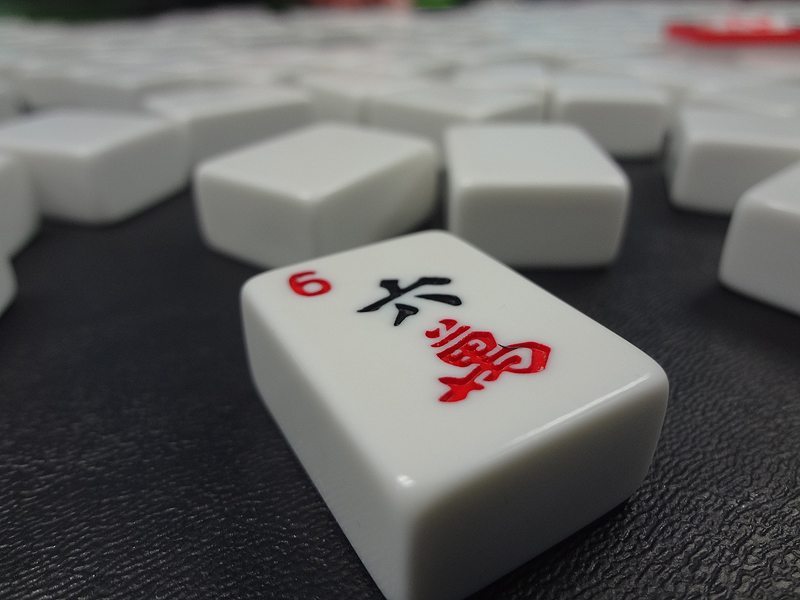Anyone looking for a new game to play should consider Mah Jongg at the Massapequa Public Library. Steeped in the lore of an ancient and proud culture, the game has stood the test of time over the course of centuries.

(Photos by Chris Boyle)
Mah Jongg is played with a set of 144 tiles based on Chinese characters and symbols divided up into three separate suits: crak, bam, and dot. The game can accommodate a maximum of four players, and is renowned for it’s unique combination of gameplay elements: complexity, strategy, and, above all else, fun.
Arline, a Massapequa resident who meets up to play the game once a week with her friends at the Bar Harbour branch of the Massapequa Public Library, said that she’s been playing the game over nearly a year and a half, and at times she still feels like she’s barely scratched the surface.
“The library was having instruction classes, and they only cost $5 for 10 weeks of instruction,” she said. “It was affordable, and I was bored, so I decided to give it a try. And before you knew it, I was making friends with the other girls who were taking the course and we were getting together and playing and laughing because we weren’t playing it right at first.”

Dorothy of Massapequa Park is another relative newcomer to Mah Jongg, having only been playing for the past two years; however, she considers herself quite a student of the deep history that stands behind it.
“Mah Jongg started in ancient China, and from there it went to Germany,” she said. “It was played a lot during World War II, and when the Jewish people migrated over to America, they brought the game along with them, after having made some basic changes to how the game is played. The Chinese play this game completely differently than we do here…it’s not the same game. This is basically the Jewish version.”
Despite the daunting complexity of the game, Arline took the time to explain the basics of Mah Jongg.
“You start off with 13 tiles, and just like playing cards, the idea is to achieve a certain hand. We base our hands on a card that’s put out annually by the Mah Jongg League that has about 25 different hands on it,” she said. “Based on what tiles you initially receive, you have to see what tiles match a particular hand, and you work towards that hand while the other playing with you work towards theirs.”
Arline noted that each player in a game can be going for their own individual hands, with their competitors furiously attempting to figure out which one; this adds an additional layer of competitiveness to the field, as opposed to a game like poker, where everyone naturally gravitates towards a few specific, ideal hands. However, in this instance, there is no one “ultimate” winning hand; it’s whoever gets to “Mah Jongg” first that matters.
The process of being the first player in a game to achieve Mah Jongg can be fast-paced and intense; Arline said that players can consistently pass and trade tiles amongst a growing pot of them situated in the middle of the playing table.
“If someone puts down a tile that you need and you take it, you have to throw in a tile of your own,” she said. “The idea is to stick to the game that you’re playing, watch what other people are picking up and putting down, and act accordingly.”
Massapequa resident Terri has been an avid player of Mah Jongg and a regular fixture at the library’s weekly games for several years.
“It’s fun, it’s relaxing, it’s difficult, but it’s a good kind of difficult, you know?” she said. “And while some women take it very seriously, with no talking whatsoever, we laugh and enjoy ourselves. It’s a great social activity in addition to being a great game that keeps your brain sharp.”
Dorothy echoed Terri’s sentiments, saying that Mah Jongg can help to give a boost to mental faculties (and social life), no matter the players’ age.
“I played Mah Jongg when I was young, and when I retired I was looking for something to do to keep my brain active. So, I took the lessons at the library like Arline did — they have excellent classes — and I started to play,” she said. “You have to think, you have to play strategically, offensively, defensively…it’s a very complex game, yet very rewarding.”
Visit the Massapequa Public Library’s website at www.massapequalibrary.org to see when they’re holding their next class.






























